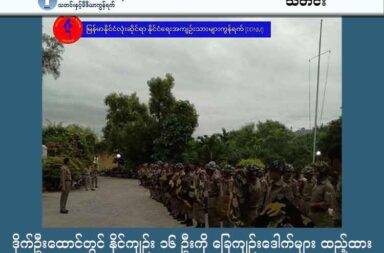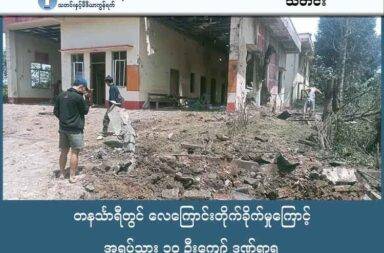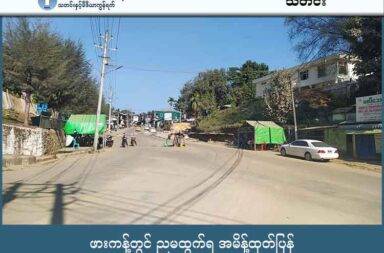Tatmadaw Announces Four-Month Ceasefire in Northern Burma
The military says it will call off military operations in Shan and Kachin states until April 30, 2019.
By NETWORK MEDIA GROUP (NMG)
Saturday, December 22, 2018
The Burma Army—also known as the Tatmadaw—announced on Friday that it would halt military operations in Kachin and Shan States until April 30 of next year.
The office of the military’s commander-in-chief released a statement on Friday saying that the decision was made to facilitate negotiations with armed groups that have not signed the country’s Nationwide Ceasefire Agreement (NCA).
“Non-NCA armed groups, which are based in the regions controlled by the northern military command, northeastern military command, eastern military command, central-east military and triangle military command, need separate meetings with the Tatmadaw for ceasefire negotiations and further discussion,” the statement said.
It also emphasized that non-NCA signatories must hold discussions with the government’s National Reconciliation and Peace Center (NRPC) on the NCA and the peace process during the ceasefire period. If the Tatmadaw’s participation is needed in the meetings, the statement said that respective military command heads and high-ranking officials from command headquarters led by Lt-Gen Yar Pyae would join.
On December 12, three groups that have been largely excluded from the peace process—the Arakan Army, Myanmar National Democratic Alliance Army, and the Ta’ang National Liberation Army—released a joint statement saying that they would stop military actions against government forces and participate in political dialogue. The statement came following talks with Burma government representatives facilitated by China.
The joint statement was welcomed by the government’s Peace Commission, which responded with its own statement saying that it would cooperate with stakeholders to facilitate the signing of the NCA.
Friday’s statement from the Burma Army said that during the process of negotiations, the ethnic armed groups involved must follow four of the six principles of the military’s peace policy: commitment to the peace agreement, abstaining from taking “unfair advantage” of the peace agreement, not placing burdens on locals people, and strict adherence to existing laws.
Not mentioned were the points requiring actors to work toward democracy in accordance with the 2008 Constitution, and to have a “keen desire” for lasting peace.
The Tatmadaw said it would focus on security sector integration and the signing of a Union Peace Accord.


